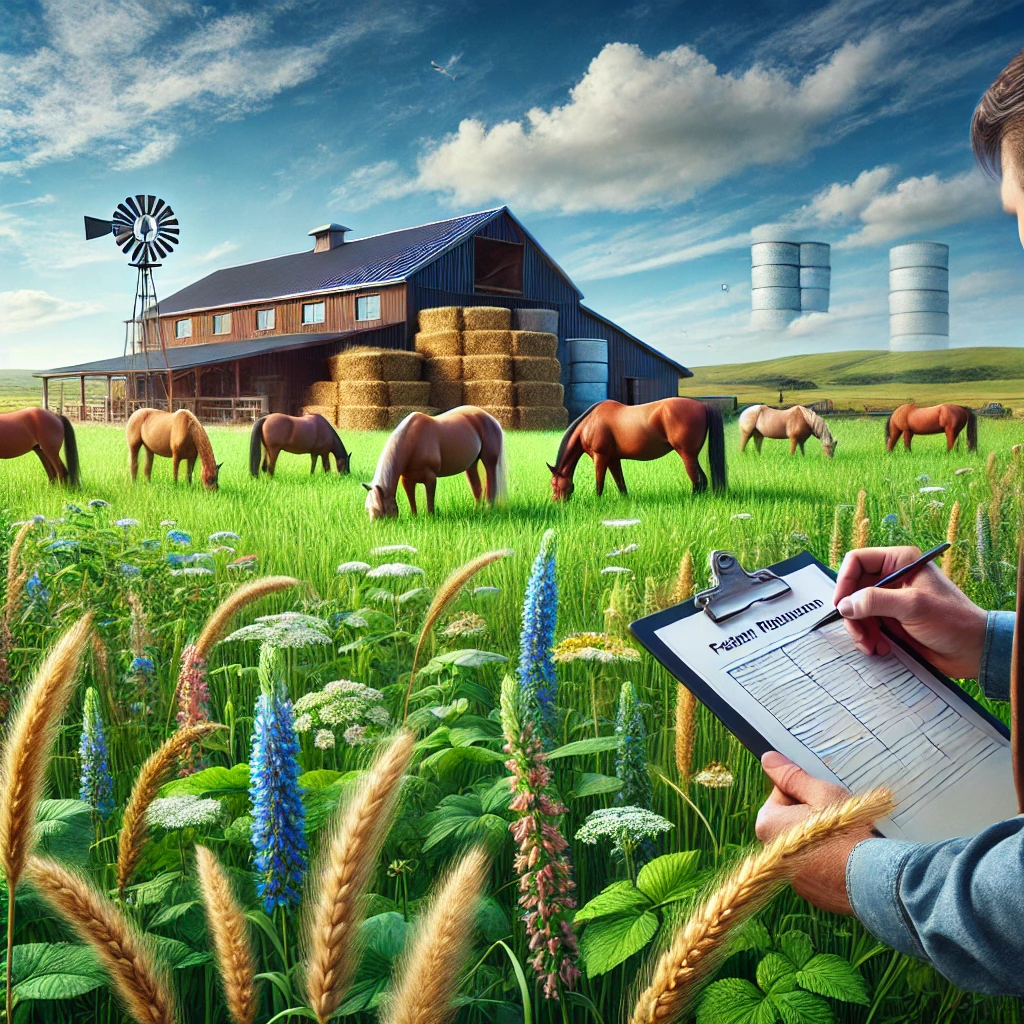Introduction to Equine Nutritional Management
In the intricate world of equine care, the role of a horse caretaker extends beyond basic grooming and exercise; it delves deeply into the realm of food production. This responsibility is pivotal for maintaining the health and vitality of these noble animals. The production and management of Horse Caretaker Food Production encompass a variety of practices aimed at optimizing the nutritional intake of horses. This article explores the various facets of this crucial aspect of horse care, highlighting the best practices in pasture management, hay production, and grain cultivation.
Pasture Management for Horse Caretakers
Cultivating Optimal Grazing Grounds: Types of Grasses and Legumes Suitable for Horses
The foundation of good horse nutrition starts in the pasture. The selection of grasses and legumes to cultivate should be guided by their nutritional value, growth patterns, and adaptability to local climates. Common choices include timothy, Bermuda grass, alfalfa, and clover, each offering specific benefits such as high fiber, protein content, and digestibility.
Enhancing Soil and Grass Health: The Significance of Rotational Grazing
Rotational grazing is not merely a farming technique; it’s a strategic approach that enhances pasture longevity and quality. By rotating grazing areas, caretakers can prevent overgrazing, reduce the risk of soil erosion, and help maintain the nutritional quality of the grass, leading to healthier horses and reduced feed costs.
Sustaining Equine Health Through Strategic Field Care: The Key Role of Pasture Management
Effective pasture management involves regular soil testing, appropriate fertilization, and controlled grazing. These practices ensure that the pastures remain healthy and productive, directly influencing the well-being of the horses that graze upon them.
Hay Production for Horse Caretakers
Diverse Forage Options: Types of Hay
Hay serves as the staple forage for horses, especially in regions where fresh pasture is seasonal. Various types of hay, including orchard grass, fescue, and legume mixes, offer caretakers flexibility in addressing the dietary needs of different horses, from active racers to retired companions.
Ensuring Premium Feed: Assessing Hay Quality
The nutritional value of hay is contingent upon its maturity at harvest, storage conditions, and absence of contaminants. Caretakers must be adept at assessing hay quality, looking for factors such as color, texture, and aroma, which indicate its suitability for equine consumption.
The Craft of Haymaking: Making Hay
The process of making hay is timed meticulously to capture the peak nutritional value. Cutting, drying, and baling hay requires precision and an understanding of local weather patterns to prevent mold growth and nutrient loss.
Grain Production for Horse Caretakers
Nutrient-Rich Supplements: Nutritional Value of Grains
Grains like oats, barley, and corn are often incorporated into a horse’s diet to supplement energy needs, especially for those with high caloric requirements. Each grain type offers different benefits, such as high fat, fiber, or protein content.
Integrating Cereals: Introducing Grains into a Horse’s Diet
Introducing grains into a horse’s diet should be done gradually to avoid digestive upset. Caretakers must monitor the horse’s health and energy levels to adjust grain portions appropriately, ensuring a balanced diet that supports the horse’s lifestyle and health.
Managing Consumption: Monitoring Grain Intake
The inclusion of grains must be carefully managed to avoid overfeeding, which can lead to obesity and metabolic issues in horses. Regular weight checks and dietary adjustments are essential components of effective grain management.
Conclusion: The Art and Science of Horse Food Production
The role of a Horse Caretaker Food Production is both an art and a science, requiring a deep understanding of agronomy, nutrition, and animal behavior. Through effective pasture management, careful hay production, and strategic grain use, caretakers can ensure that their horses receive the best possible nutrition. This holistic approach to food production not only enhances the health and performance of the horses but also enriches the bond between the caretaker and their cherished equine companions.
FAQ: Horse Caretaker Food Production
1. What is the recommended diet for a healthy horse?
A balanced diet for a horse typically includes forage (like hay and grass), grains, and a commercial feed that is tailored to their specific nutritional needs. New, clear water should continually be available.
2. How much food does a horse need daily?
The amount of food a horse requires depends on its size, weight, activity level, and health. Generally, horses eat 1-2% of their body weight in forage per day, with additional grains and supplements as needed.
3. Are there any foods that are unsafe for horses?
Yes, certain foods can be harmful to horses. These include, but are not limited to, chocolate, caffeine, avocado, and nightshade vegetables like potatoes and tomatoes. Always check if a food is safe before feeding it to your horse.
4. How often should horses be fed?
Horses benefit from being fed small amounts multiple times a day. It’s ideal to feed them at least twice daily, but more frequent meals are preferable to help mimic their natural grazing habits.
5. What should I know about producing feed for horses?
Producing feed for horses involves ensuring the quality and safety of the ingredients. Forage should be free of mold and toxins, and grains should be processed in a way that makes them easily digestible for horses. Quality control and regular nutritional assessments are crucial.
6. Can horses eat processed foods?
While some processed foods are designed specifically for horses, it’s important to keep their diet as natural as possible. Avoid feeding horses heavily processed foods meant for human consumption, as these can disrupt their digestive system.


